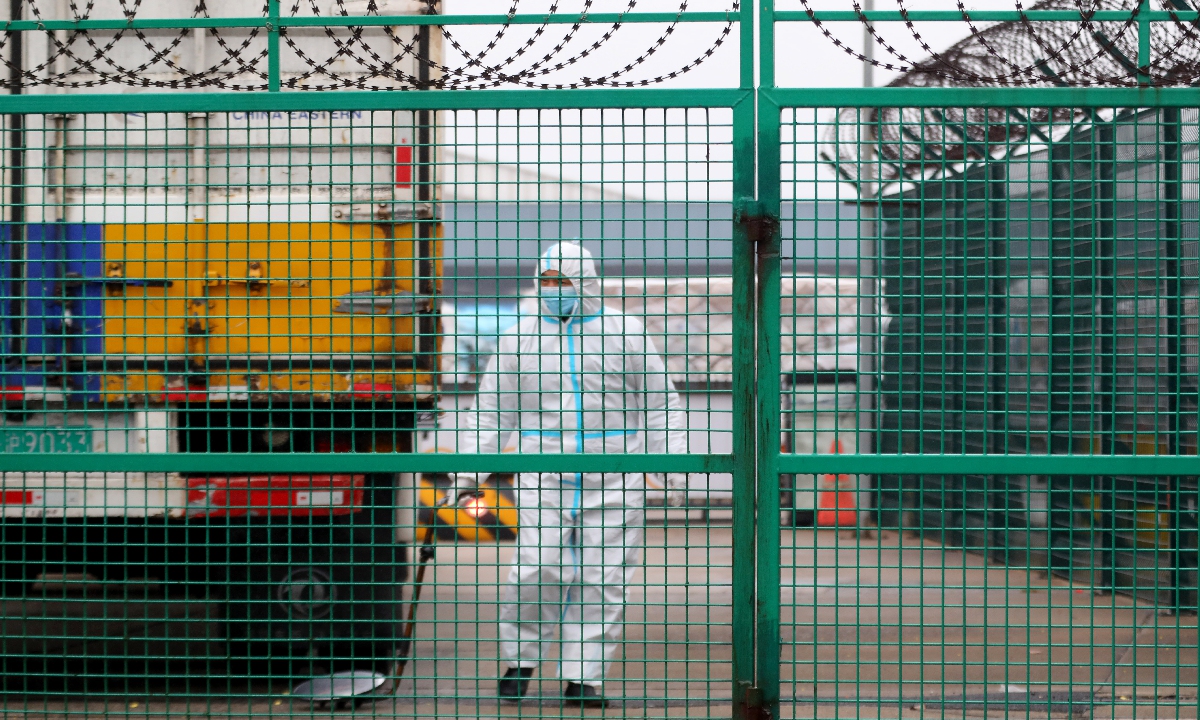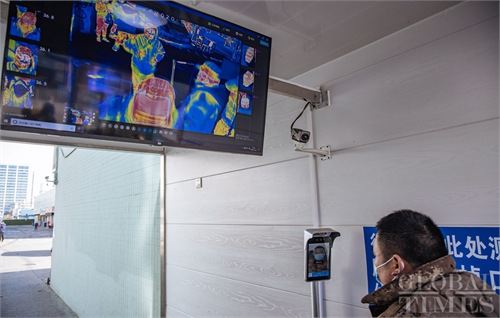Beijing airports to conduct regular nucleic acid testing on front-line staff in cargo area

Photo: Yang Hui/GT
Beijing will comprehensively strengthen and improve COVID-19 prevention and control measures in airport cargo areas and relevant business chains, said Xu Hejian, spokesperson for the municipal government and director of its information office, on Tuesday.
Xu also announced that Beijing airports will conduct regular nucleic acid tests on frontline staff in cargo areas, and continue to control direct flights to Beijing.
The latest sporadic outbreak at the airport occurred when China's top health authority found that the number of cases involving COVID-19-positive imported cold-chain foods has increased significantly, affecting more areas and products, such as seafood, meat and poultry. The infections have also extended from cold-chain food to containers, according to the investigation conducted by the Global Times and published on Sunday.
Since Chinese customs reported that coronavirus was found on packaging of imported frozen shrimp from Ecuador in July, 16 provincial-level regions have reported at least 41 cold-chain related coronavirus cases, according to publicly available statistics.
Since June 11, Beijing has reported 335 confirmed COVID-19 cases linked to a cluster of infections in the Xinfadi wholesale market. As part of the overall enhanced measures in the capital city, the Jingshen Seafood Market, a major seafood wholesale market, located about eight kilometers from Beijing's Xinfadi market, stopped granting access to individual customers after it was reopened in mid-September.

